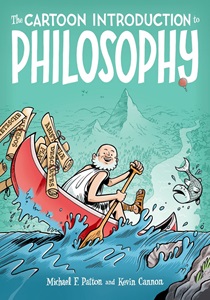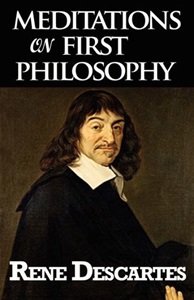

These are works that have struck me as, in one way or another, helpful in understanding what philosophy is, how it is done, and hopefully how to do it correctly. This is not to say that every work listed here always does philosophy correctly. All of them should be taken to be potentially wrong about any particular thing they say, some I think are clearly wrong about at least one specific thing they say, and I think that at least one is definitely wrong about almost everything it says. (This last work, wrong as I think it is, is still one of the most brilliant books in philosophical history.)
Of course, you don't have to make up your mind about any of the issues covered in these works. You can read just to get a taste of what various people think about various issues. If you do want to get to the right answer about some particular issue, you should find out what all the sides think about the issue, the reasons they give for thinking what they think, and perhaps wonder about what everyone is leaving out from the discussion. Once you have a handle of what is being said, and not said, argued and not argued, then you can start doing your own logical analysis of the relevant arguments, which, at heart, is what philosophy actually is. |
The Cartoon Introduction to PhilosophyMichael F. Patton, Kevin CannonNot only is this text mostly right about most of the
topics it covers, it is both entertainingly illustrated
and very clearly written. I recommend it simply because it
gives a more-or-less accurate overview of the kinds of
things that are covered by philosophy, and the way
philosophers tend to argue about those things. I'm not saying that this book is right about every thing.
There are plenty of places where an expert might quibble
with what is said, but on the whole, I think it is
generally on the right track. Or at least, it usually
presents enough information for you to begin making up
your own mind. Except in one case. Its discussion of free will
ignores the possibility that a free-willed act is an act
that is both willed and free,
which, in my view, is pretty serious omission! (For
my views on free will, read: Free Will
and Determinism |
 |
If you are interested in understanding the
absolute insanity that is the philosophical movement
confusingly known as "rationalism", this book is a very good
start. It is both initially brilliant, and
from then on completely bonkers (in ways that only a true
genius can be bonkers). It begins by developing the most
famous inference in western philosophy (you know which one),
but follows this brilliance with a series of absolutely
terrible arguments that completely fail to prove any
of the things Descartes thinks they prove. "Rationalism" is the idea that we can set knowledge on a footing of absolute certainty by means of a series of absolutely certain logical inferences. It is characterized by elaborate arguments with little or no attention paid to evidence. (If you have a math background, rationalism is sort of an attempt to do philosophy with the methods of plane geometry.) "Empiricism" denies that we can have certainty about the real world, and regards evidence as the only real basis for gaining usable real-world knowledge. ("Empiricism" is nearly a synonym of "science") Oh, and rationalism believes in spooky things that can't be observed in any way. The main reason I suggest this book is that, by reading the wacky arguments Descartes deploys to support wacky ideas you can gain a really good idea of how rationalist thinking works, and why (in my view) rationalism completely fails to prove any of the things it sets out to prove, You might also enjoy figuring out how those wacky arguments go logically wrong. (Or you might read my take on all that.) |
 |
"Tao Te Ching"
I'm really not qualified to discuss the Daodejing,
but it is very much a text that speaks for itself. I'm not
saying it holds any profound, eternal truths, and I'm not
saying it doesn't. What I am saying is that it's
worth reading for a wide variety of reasons. The poetry is
beautiful and evocative, and the ideas conveyed are possibly
the most thought-provoking you could ever find. I don't
claim I entirely understand it, but I always enjoy reading
the verses. |
| Other recommendations: What does it all mean? A Very Short Introduction to Philosophy by Thomas Nagel. Beyond Good & Evil, by Friedrich Nietzsche. The Prince, by Niccolò Machiavelli Fear and Trembling, by Søren Kierkegaard |